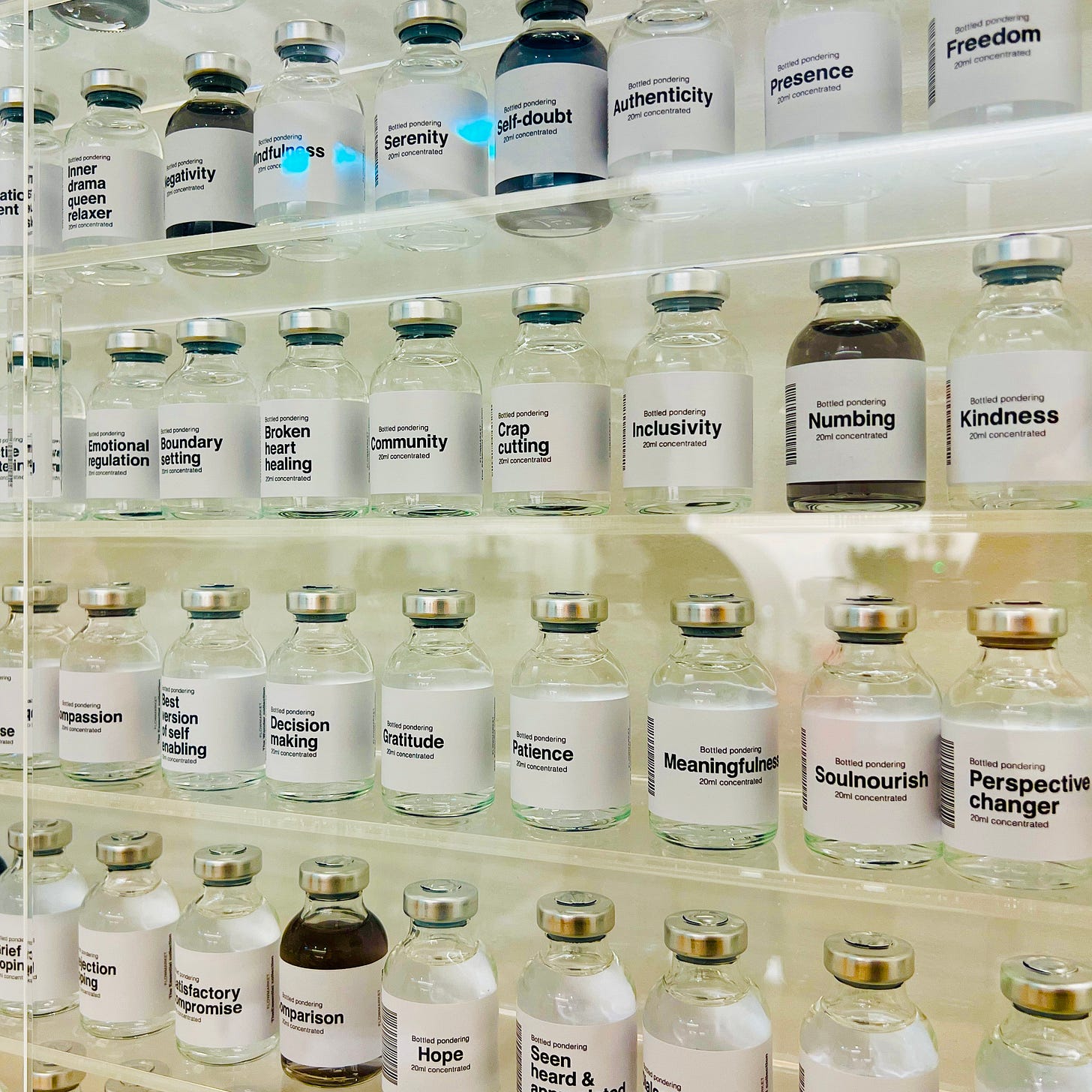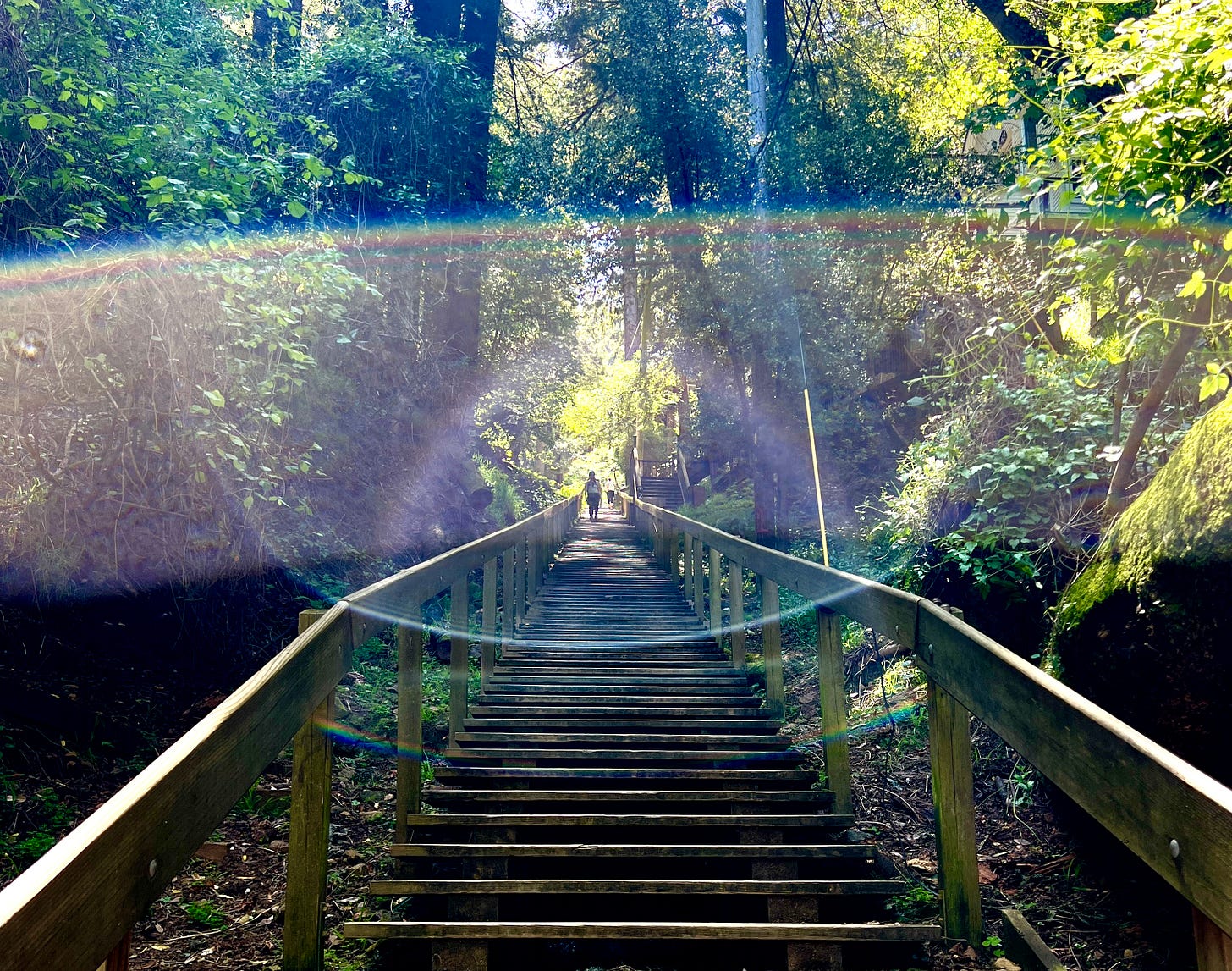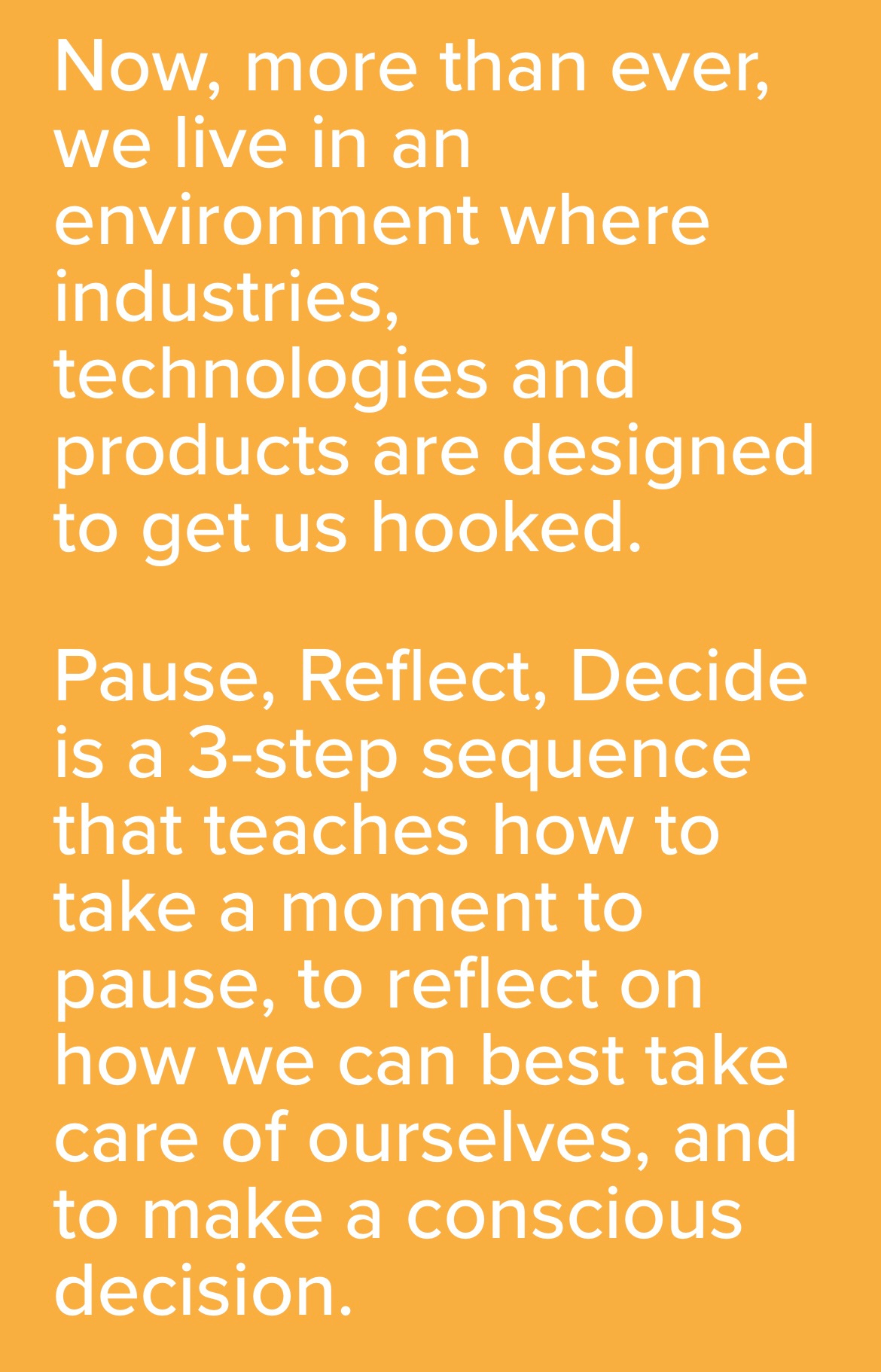Kid wisdom: Feeling good rocks.
I am a baseball mom. Both of my sons (12 and 16) have been playing since preschool. My butt bones are very familiar with chilly aluminum bleachers.
The kids are skilled players, but they get the same feedback from their coaches year after year: “Try to be more consistent. We need to know what we can expect when you’re on the field, up at bat, on the pitching mound.”
This recently came up when my younger son joined a competitive postseason team. We’ve been talking about focusing on the difference between what we can control and what we can’t control in trying to be a better, more reliable player.
We can’t control the weather, the skill level of an opponent, or umpire calls. We can control how we feel in our body, largely depending on whether we are nourished, hydrated, and rested. When we’re hungry, thirsty, or tired, we’re more likely to miss a play, drop a ball, or play shy of our best. For him that means choosing to eat healthy meals, drinking plenty of water, and getting at least nine hours of sleep a night. We’ve been working on empowering him to self-govern in these ways and encouraging him to notice how different choices make him feel.
It’s timely because this is what The Second Awareness is all about: The power of choice in helping us feel good and do our best.
Clarity enables choices.
Last week we explored the The First Awareness: My Life is Better Clear. Many of you shared its relevance to emotional eating, marijuana use, challenging relationships, and of course, alcohol. The transition from pondering whether a change might benefit us (this can take years!) to a knowing that it’s time to make a shift can be spontaneous or gradual. There is no right way.
One reader shared her “My Life is Better Clear moment.” She battled issues with alcohol, sugar, and processed food, all of which were interconnected. Here's her account:
“I overdid it to the point where I grossed myself out. I felt so horrible the next day because I unconsciously made all of those decisions the night before, I felt at every level like I had a hangover. Physical hangover, emotional hangover, mental hangover, lack of choice hangover, lack of consciousness hangover. All of it. It was gross. I knew it was time. No more.”
That was six months ago. This week she shared that the power of choice only became apparent when she realized her life is better clear. She needed to reach a point where she was so thoroughly fed up with her old habits that she was eager and ready for change. The clarity derived from Awareness #1 was crucial, an indispensable step on her journey that strengthened her resolve to shift a bundle of connected habits that weren’t serving her.
The Second Awareness: I Choose What I Consume
With the foundation of the First Awareness in place (no matter how long it takes to settle into it), we next have the opportunity to more consciously choose what we consume. We realize we are in control of what we allow into our bodies and our lives.
The Second Awareness is about choice: I choose what I consume, how I spend my time, and whether I engage in dimming behaviors. Embodying this awareness can simplify the task of shedding unwanted habits. It reinforces our agency. We choose what we eat, drink, watch, and with whom we spend time. We become less susceptible to temptations, social pressures, and the momentum of habitual tendencies that often result in “Ugh, I did it again” feelings.
Self mastery is sexy.
We see it in accomplished athletes, entrepreneurs, authors, teachers, physicians, and really anyone who utilizes self-discipline. Whether it’s adhering to education and workout schedules, committing to artistic or writing commitments, maintaining a healthy diet, following a training program, or abiding by a daily meditation practice, it all depends on self-mastery. This is why graduations and award ceremonies are so touching; we know a lot goes into these achievements and it’s moving to recognize and reward perseverance and hard work.
The same goes for choosing to remove things that stand between us and the version of ourselves we want to be. This can take a certain level of grit and steadfastness we find attractive in ourselves and others.
A dear friend quit smoking cigarettes in his twenties. For months, he kept an open pack and a lighter on the table in his living room, a steady reminder that he was choosing to not smoke every day. In a culture brimming with temptations like alcohol, unhealthy food, addictive media, and other potentially harmful habits, harnessing the power of choice can be transformative. It’s a game changer to claim the power of choice for ourselves.
A departure from AA
I can’t resist pointing out the differences between “I choose what I consume” and the first three steps of the Alcoholics Anonymous Twelve Steps:
Step 1: We admitted we were powerless over alcohol—that our lives had become unmanageable.
Step 2: Came to believe that a Power greater than ourselves could restore us to sanity.
Step 3: Made a decision to turn our will and our lives over to the care of God as we understood Him.
While AA certainly has its merits, if we don’t self identify as an addict yet believe we are better off without certain things, powerlessness and surrender might not be the best approach to change. It wasn’t for me.
My journey with The Second Awareness
When I first considered the idea that my life might improve without the things working against me—my lengthy commute, my broken marriage, and my daily detrimental habits, most notably mindless TV and alcohol—I felt helpless. Changing any of these things seemed impossible. I had to do them, they were part of my life, changing them would be very difficult—and disruptive.
I came to realize that I am privileged enough to be in the drivers seat of my life. No one was forcing me to do or consume or do anything. This applied to my decision to commute more than three hours a day, to remain in a marriage plagued with infidelity, to spend too many hours a week watching TV series, and to drink alcohol on most days.
As my desire for change intensified, I turned to trusted advisors—wise women in my life, dharma teachers, addiction specialists, and life coaches. I devoured books on intentional change and habit hacking. I eventually realized that I wasn’t being compelled to do or consume anything. I get to call the shots. So I started to shift things.
I am not my mom.
I grew up surrounded by alcohol as a way to celebrate, relax, convene, grieve, and connect. I was also afraid that quitting would be embarrassingly hard, leading me to attempt control or limit it, rather than quit entirely. I tried numerous rules—drinking only on weekends, only one drink a night, only drinks outside of the house, or only consuming wine. But an alcohol buzz means inhibitions fall away, so after one drink my “fuck it muscle” would kick in making it all too easy to roll right over good intentions. As a result, despite best efforts coupled with a fear I might fail, these goals were all short lived.
On alert throughout my thirties and into my forties given my mother’s untimely death from an alcohol-related cancer, I wanted to be sure I wasn’t following in her footsteps. When I finally took a substantial break—starting with 30 days—I distinctly recall realizing the power of choice was in my hands. If I drank, it was because I chose to accept, purchase or prepare the drink, lift it to my lips, and sip it. If I wanted to stop, I just had to not do those things. That realization was transformative for me. I reclaimed the power I’d placed outside of myself and decided to stop. After that everything got a lot easier.
“I didn’t know you had a problem.”
From an external perspective, it’s evident that many of my early decisions about my career, marriage, and lifestyle were a direct counter to my mother's path—a phenomenon I believe many women can relate to. A particular sensitivity was ensuring that I didn’t end up with an alcohol use disorder, similar to the one that ultimately took her life.
Walking down the dark hallway of an undeniably charming French restaurant in San Francisco, Amy, a close acquaintance among several at a table for eight that night, caught up to me on my way to the ladies’ room. “I didn’t know you had a problem,” she said, now facing me, brow furrowed, her expression revealing not only surprise but also judgment and maybe even a bit of doubt. Challenge? She’d noticed I’d passed on the wine and then overheard me telling a fellow diner that I was opting out of drinking for at least a month. She studied my face as I tried to find words to respond.
“I didn’t,” I said. “I mean, I don’t. I’m just taking a break. I need to get clear, reset. Some big life changes are underway, and I want to be sure I don’t make any mistakes, regrettable decisions.” I could feel a tension in my chest and jaw as I spoke, chin up slightly, committed to reversing Amy’s assumption that I was somehow weak, incapable of drinking responsibly, even worse, an alcoholic. I knew alcoholics. I wasn’t one. Nothing was wrong with me. I was just taking a break for thirty days, and I was only two weeks in.
From Chapter 10 of The Canary (forthcoming)
In the early stages of my alcohol-free journey, I was fiercely defensive about my choice. It infuriated me when people assumed my choice to not drink was because I had some kind of a problem. (It still amuses me to no end that alcohol is the only drug we need an excuse to not take.) My ego and pride, still in very influential seats at the table of my life, wanted everyone to know that the changes I was making were because I wanted to, not because I had to. These were my choices, not a surrender. Though I’m not proud of it, this attitude fueled my determination, sense of agency, and perseverance for years.
Shedding victimhood
Embracing the power of choice extends beyond just ceasing a habit or behavior. When we realize we are in control, that we get to choose, it creates a ripple effect throughout the rest of our lives. We get to explore a different perspective—that life isn’t happening to us, it’s just happening. If this feels like a step too far, at least we can choose how we respond to our circumstances.
Yes, I had a terrible commute, but I was privileged enough to try to find a different job closer to home if I wanted to. Sure, the infidelity wasn’t on my end in my marriage, but I could have figured out a way to leave long before I did. Of course, watching hours of television was a perfectly reasonable way to wind down after a long day, but if I wanted to move ideas and projects forward or connect with other people, those evening hours were better spent reading, writing, composing a letter—or even taking a walk. And finally, with my dimmer of choice being alcohol, having a drink or more daily wasn’t a huge deal, but if I wanted to break this habit and live a healthier, more present life, I could have tea instead.
When we realize that we control our actions (and reactions), not only do we get to make the changes we want to make, but we realize that we can’t blame others or our circumstances for most challenges we face. In my case, shedding a victim orientation meant empowerment and a newfound sense of accountability.
This is one reason why ClearLife is such a big deal. It transcends whether we use intoxicants, over-consume anything, or have other dimming behaviors. It paves the way to understanding that how we live this single, short, precious life is entirely up to us. We’ll delve into this in The Seventh Awareness: Time is our most precious currency.
Practices to support The Second Awareness: I Choose What I Consume.
Start small. Not everyone needs a definitive “never again” moment. We can begin with incremental steps. Struggle with late night snacking? Skip a night or two a week. Feel like you watch too much television? Commit to cut your hours in a manageable, achievable way. Each time we overcome an urge, three things happen: (1) we get to notice the difference, (2) our confidence in our ability to make choices about what we consume builds, and (3) the process becomes a little easier. As one reader recently shared: “Every time I skip the drink, the decision feels easier than before.” (This approach didn’t work for me with alcohol, but most people have several chapters of these explorations on their journey to an alcohol free life.)
Envision your life without the habit. Consider the physical, mental, and emotional changes you might experience without it. Envision your life in ten years of you make the shift, or if you don’t? In my case I had my mother as an example of one of two distinct paths before me and the preference was clear. My focus on that desired version of myself was a fantastic motivator.
Simply become more aware. Observing the results of our decisions is a potent step forward. What choices do you make throughout the day? How do the results of these choices make you feel? These can be minor things, such as what time you set the alarm for, whether you eat dessert, whether you take breaks between meetings, how much time you spend outdoors, or whether you open the mail daily or weekly, and so on.
Self-inquiry: Numb vs. Nourish? A dear friend I’ve mentioned in these TGIFs before, Jessica Culvin, recently helped to launch a website on this theme: Numb or Nourish? You Decide. This is a simple and accessible approach: “Pause, Reflect, Decide is a 3-step sequence that teaches how to take a moment to pause, to reflect on how we can best take care of ourselves, and to make a conscious decision.” This is a fantastic tool for applying The Second Awareness to just about anything.
Choices every single day.
A flashback to early 2018, excerpted from Chapter 29 of The Canary:
“You keep beer in the house!?” my brother-in-law said when I offered him an ice-cold Stella. He and his family arrived for a family dinner gathering at our home. “Sure, of course,” I said. “Most of our friends and family still drink.”
“Still drink?”
“Oh, yeah. Sorry. Drink.”
After a brief side glare, he popped the cap and took a long sip.
I could smell the fresh hoppiness and feel the sting of alcohol in my nostrils immediately. My sense of smell, especially for alcohol, seemed to have heightened since I’d stopped drinking.
“Isn’t it hard for you, to live with temptation?” he asked. “Don’t you want one?” He was aware of my not drinking for two years and was still confused by it, despite several conversations.
“No. It’s not. I tell myself and others I’ll drink again if and when I want to. That just hasn’t happened. I don’t think it will.”
I’ve since shed the smugness that informed my “Still drink?” question, but we still have a lot of booze in our house for guests. Vodka for a relative who likes a greyhound, beers for the afternoon drop ins, wine for the dinner parties. In a way this reminds me that in a culture where alcohol seems to be literally everywhere, imbibing or not is a daily choice. Somewhat like the friend with the cigarettes on the table who chose to not smoke every day.
On taking our own medicine.
Navigating a ClearLife journey while parenting provides countless opportunities to disrupt generational patterns, check my assumptions, be humbled, and remember to practice what I preach.
As parents, we set rules and boundaries for our children’s wellbeing, but it’s important to recognize how our imposed “shoulds” might affect their natural decision-making abilities. Comments such as “don't eat before dinner” or “don't you want to see your uncle?” reflect my preferences on their choices, potentially cultivating habits they may wish to change later—such as eating out of obligation rather than hunger or maintaining difficult relationships out of a sense of duty.
Even while crafting this post, I asked my son, “Why didn’t you go to the (optional) batting practice tonight?”
“Mom, I know practice is tonight. I woke up super early today. I’m tired. I chose to stay home and rest.”
I think he’s getting it.
Love ❤️
Miscellaneous…
Looking forward to… a deep dive on Intuition next week, the Third Awareness. Do we fear it? Honor it? How to do we access it? What does it have to do with ClearLife?
I noticed… only five of the twenty first class seats were occupied by women on a cross-country flight this week, a common ratio. Why?
Inviting… feedback! I don’t always like it, but I appreciate it. Thank you for reading and for supporting my work.










“We choose what we eat, drink, watch, and with whom we spend time. “ I love these reminders, and I’ve been working to teach this to my children early, which as you mentioned is a challenge/fine line between leadership of them and self autonomy--but one they/we all deserve to have modeled and time to practice.
I enjoy reading the first two of the Eight Awareness and look forward to learning more! Thank you for sharing your stories and empowering others to reclaim their sovereignty.